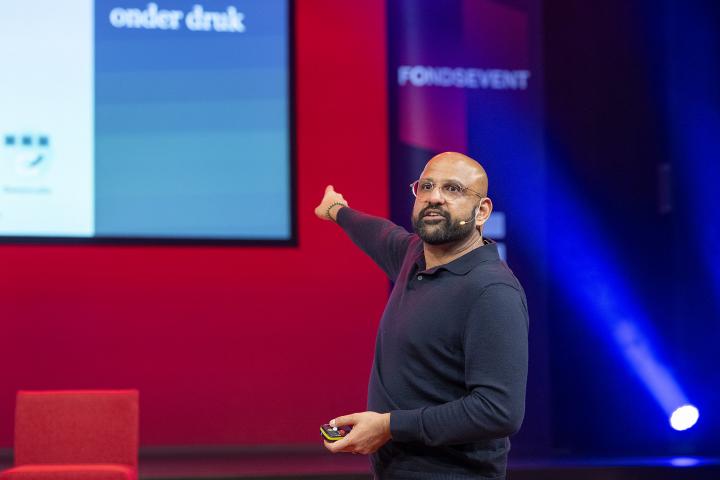
The long-assumed stability of Europe is over. Wars on the periphery, a crumbling system of free world trade, and great powers using economic interdependence as a weapon: the continent is under pressure. “The world in which investors must navigate has become more unpredictable.”
This was stated by Dutch professor and researcher Haroon Sheikh this week at the Funds Event of Investment Officer.
End of a favorable era
Since the fall of the Berlin Wall, resilience and prosperity in Europe steadily increased for decades. Democratic values seemed untouchable. But that image has turned around quickly, Sheikh analyzed. Financial markets and policy frameworks are still based on the old reality, in which geopolitics posed no immediate threat. “Because of this, we lack the tools to understand what is now coming our way,” Sheikh said.
The risks are numerous. The war in Ukraine and the conflict in the Middle East bring instability close to home. At the same time, the period of free trade is fading. Protectionism, sanctions, and strategic decoupling are the new reality. As an example, Sheikh pointed to Trump’s trade tariffs, China decoupling supply chains, and Russia threatening to turn off the gas tap. “Everything that was once part of free trade is now being used as a weapon to put pressure on other countries.”
Shifting power relations
According to Sheikh, the world order is fragmenting. Whereas in the 1990s the US was the only superpower, there are now “at least five.” China has grown into a dominant economic player and, according to a report by the Australian think tank ASPI, leads in 57 of the 64 crucial technologies. The US controls the remainder. Russia is not an economic power, but it does have sabotage capabilities that are already disrupting NATO. Meanwhile, India is trying to take advantage of the shifting balance.
Europe is watching from the sidelines. “The big question is how the continent will resist,” Sheikh said. He considers it realistic that the US will no longer automatically provide backing. “In some areas, the US will even see us as an enemy. We really have to take that into account.”
Asymmetric dependencies make supply chains vulnerable and increase the likelihood of sudden disruptions. In addition, sanctions or geopolitical tensions can shut down markets overnight. Sheikh: “It is important not to abandon sectors too quickly. Even if Europe lags behind, we must keep investing to at least keep up with the first movers. Otherwise, we will soon be completely dependent on others.”
A darker outlook
Sheikh does not make predictions about the future. But he does expect the situation to get significantly worse before it gets better. “The struggle between the great powers has only just erupted. Russia is preparing for confrontation, the US and China are already facing each other head-on. Europe remains on the sidelines, we are in an incredibly weak position.”
That very fact makes the challenge for investors greater. Navigating in a world that is less predictable and more risky requires a renewed focus on geopolitics and strategic sectors. The assumed safety and stability of the past decades are gone, Sheikh concluded.